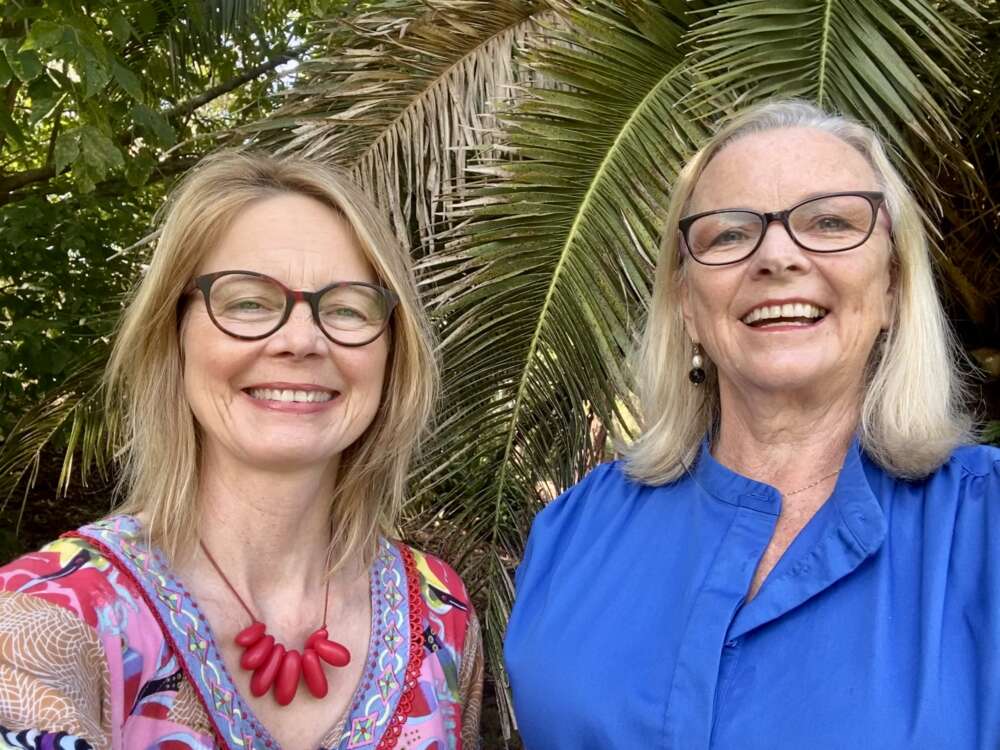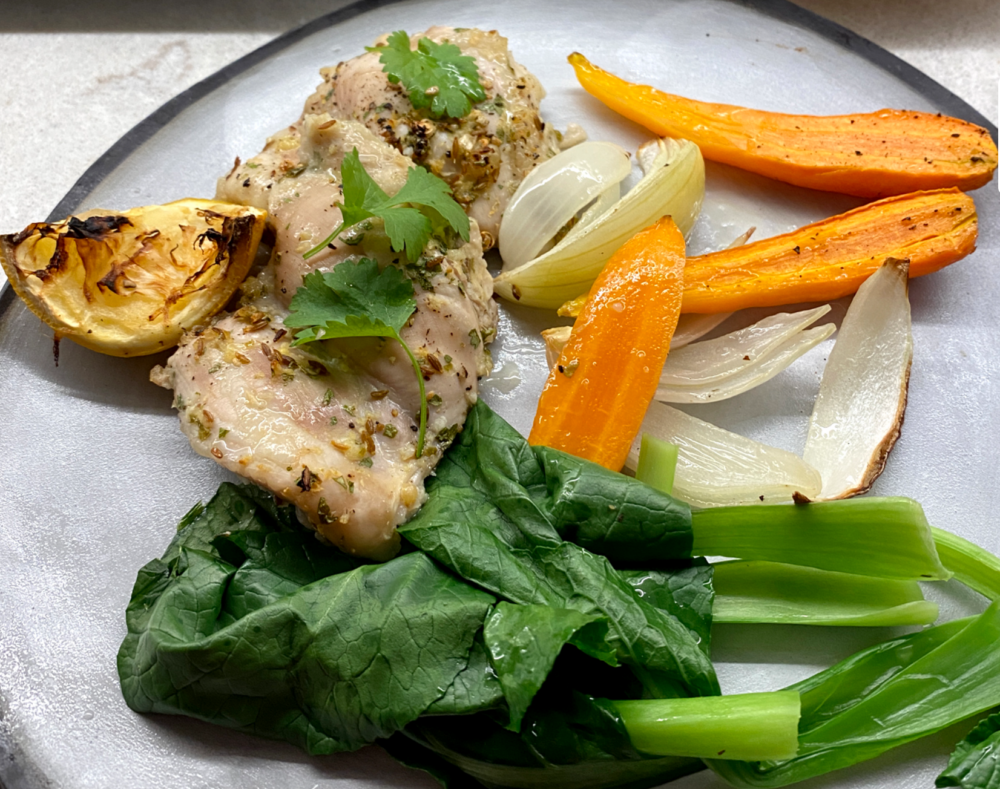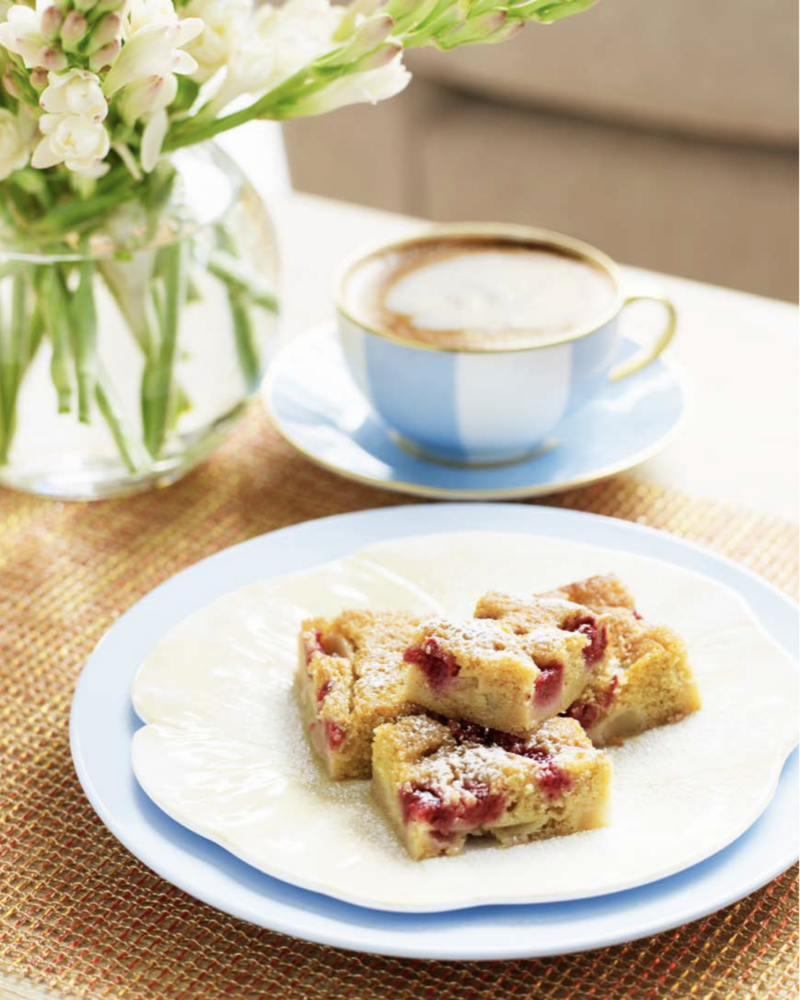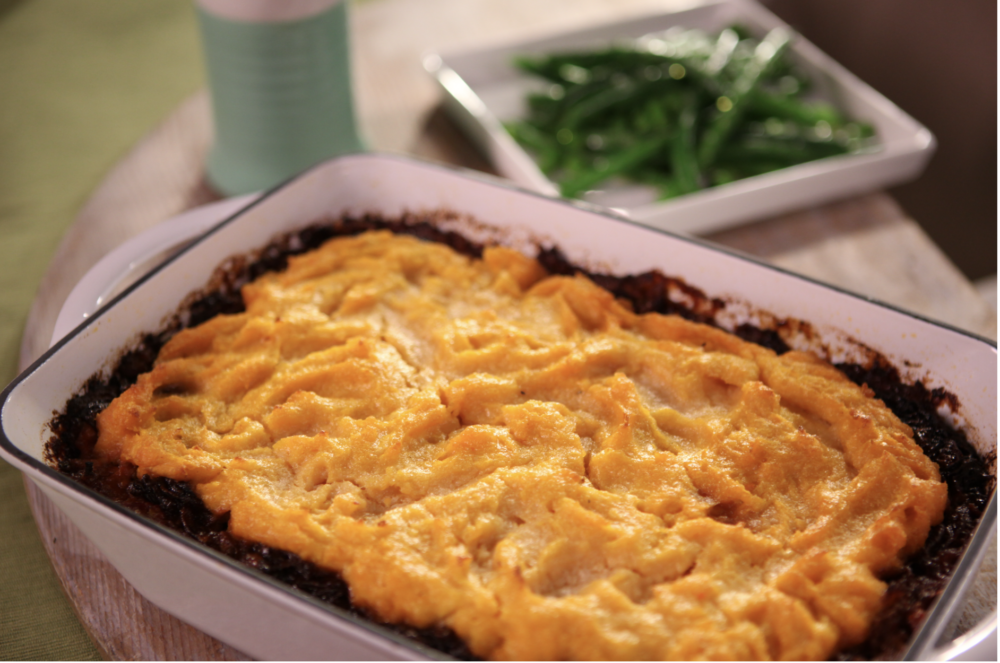
Every time I taste – or even smell – a particular style of homemade vegetable and lamb soup, I’m transported back to Saturday lunch around the Rice family dining table of my childhood.
It was my favourite meal of the week. All my siblings would gather. Dad would throw out the provocative subject he’d chosen for discussion that day. My brother Julian would control the toaster and Mum would ladle out her delicious concoction, always built from the same ingredients but from a recipe which was stored in her head.
And she always made enough for plenty of extra helpings. So we would dawdle slowly through that meal, the conversation taking us in all sorts of different directions – something Mum and Dad encouraged.
These days, that particular lamb soup aroma is a fast-track to Mum.
It’s a vivid example of how strong the links are between food and the people in our lives – and the intense memories and associations conjured through food.
“Food meets our physical needs but it also has psychological and social meaning,” said Kathrine Lyttle, Bereavement Counsellor with HammondCare, when I spoke with her about comfort foods for grief.
Great memories of good food at family occasions can be formalised. We can pass family recipes on, teaching a new generation how to make that special dish and so create a family legacy out of a family tradition.
Continuing bonds.
The smells, textures, taste and presentation of certain foods we shared with someone we love mean that food creates a continuing bond with those who’ve died, Kathrine explained.
This is a positive association between food and our experiences of people we love. But food associations can also cause distress and this needs to be managed when we’re caring for people who are grieving, especially people who are newly bereaved.
“Food has an impact on so many aspects of our lives – so the role it plays is going to be significant for people who are grieving, even though this is often underestimated,” Kathrine said.
Kathrine has supported author and television chef Lyndey Milan, whose Comfort Foods for Grief has its home on the Good Grief! website, and others in her bereavement group who meet regularly on Sydney’s lower north shore for a walk together.
Their outing combines authentic conversations, connection with others going through grief, exercise, the outdoors and sunshine.
In 2011, Lyndey’s beloved son Blair died only three days following the diagnosis of Acute Myeloid Leukaemia. Blair had recently finished filming Lyndey and Blair’s Taste of Greece for SBS, a series which took Lyndey and Blair on a fabulous food exploration of that rich, Mediterranean idyl.
Sadly, Blair died before the series screened.
In February this year, in honour of Blair and to help others, Lyndey became an ambassador for the Leukaemia Foundation and helped launch their ‘State of the Nation: Blood Cancers in Australia 2023 Report.’
With better information and a simple, early blood test, the fate of people like Blair can be avoided. It’s about providing straightforward easy to follow information for the general public. Eight deaths a year could be avoided this way, Lyndey said in her interview at the launch.
Watch it here:
But, as for so many of us, loss hasn’t stopped with one sadness. In February 2021, Lyndey’s beloved partner in life, John Caldon, died of lung cancer, even though not a smoker.
It was only late last year, in November 2022, that Lyndey was able to travel – back to Greece – this time with John in mind, to sprinkle his ashes. It was a place that John had a special connection to. Lyndey then went on to London, where she and John had shared a home, for a Memorial to John with special friends.
The loss of roles.
“After a death of someone close, it’s common for the appetite to go down,” explained Kathrine.
And so it’s no surprise that when people are grieving diets become less healthy and people often skip meals.
Visits to the supermarket can be painful because seeing certain foods, such as a deceased partner’s favourite biscuits, can trigger intense grief.
In addition, that supermarket trip can remind people they’re now eating alone and only cooking for one. This experience may be compounded by the loss of a role, the loss of the future together and the need to try to adapt to change.
“Preparing food is one way we have of showing love, so it can be hard when that role is lost following a death,” said Katherine.
“For example, it can mean the loss of small moments with a partner. One partner might have made a daily ritual of bringing the other a cup of tea in bed, in the morning when they first woke up.”
So the loss of that first morning cuppa together becomes a painful reminder of loss that has to be endured for the rest of the day.
If the one who did all the food preparation is now living alone, shopping and cooking can become harder for a long period, which can create longer term physical and mental vulnerabilities for people who are grieving. This is just as true but for different reasons if the person who didn’t cook suddenly has to struggle with this new task.
“Grief can result in a loss of confidence in the ability to plan, shop and cook. And this can have long-term impacts,” Kathrine said.
We hope Good Grief’s Comfort Foods for Grief series
can help address this need.
Resources
For an Australian article on food as therapy, go to:
And Kathrine shared articles on culinary therapy, from her library of favourites. Here they are.
- To Dr Michael Kocet of The Chicago School of Professional Psychology, culinary therapy is a way to improve mindfulness, says Shamontiel Vaughn writing about it in their Insight magazine, in From Cooking to Counselling. Read more.
- The Cooking for One Series, grew out of the bereavement counselling program in an American hospice. In this article Heather Nickrand aad Cara Brock wrote Culinary Grief Therapy: Cooking for One Series, published in the Journal of Palliative Medicine.
- And the benefits of cooking interventions were analysed in a 2017 review



